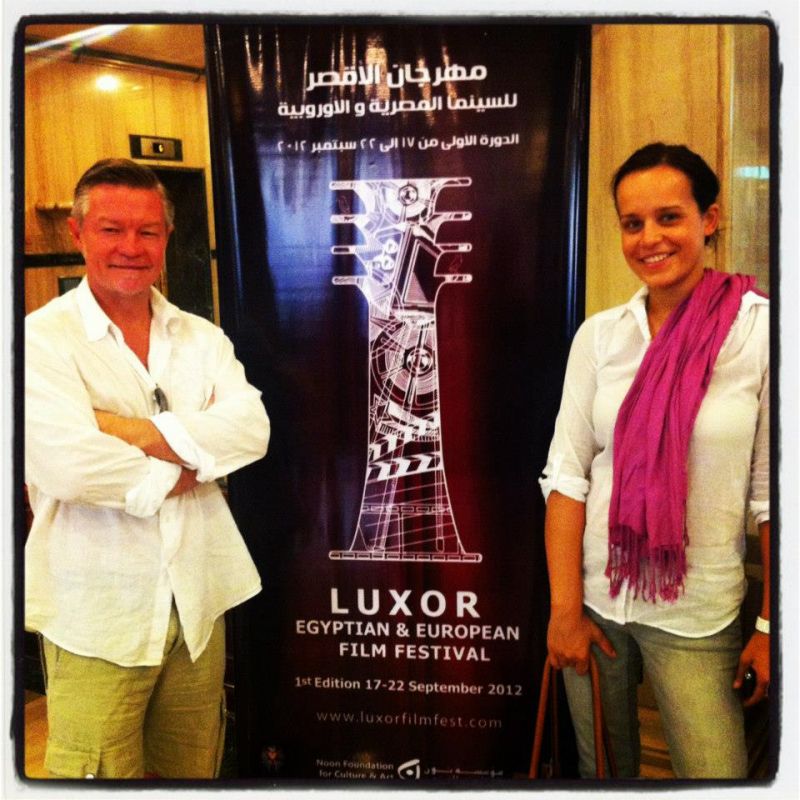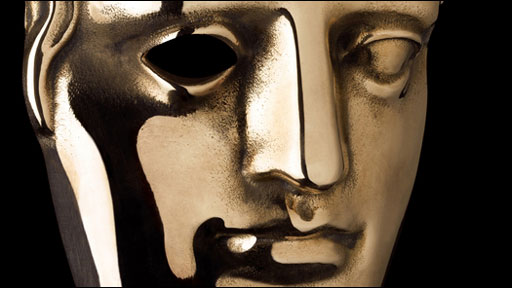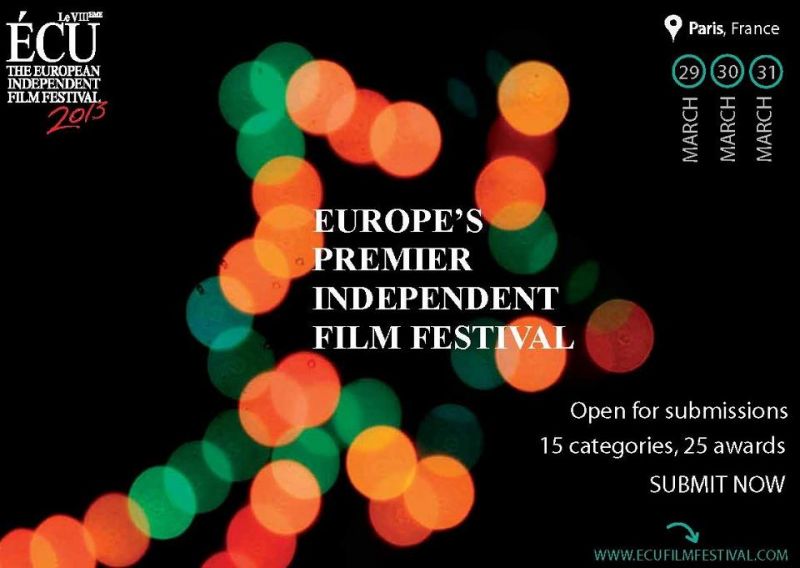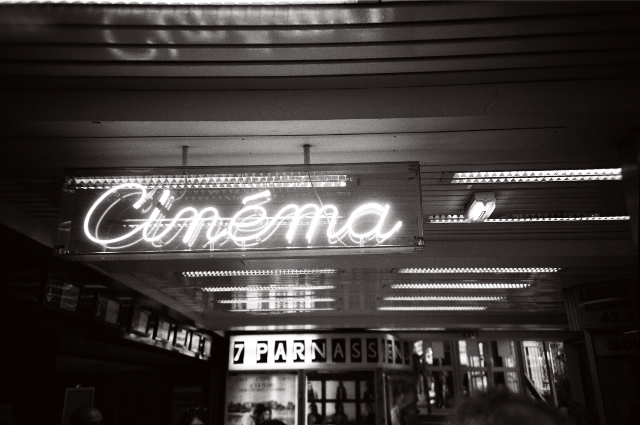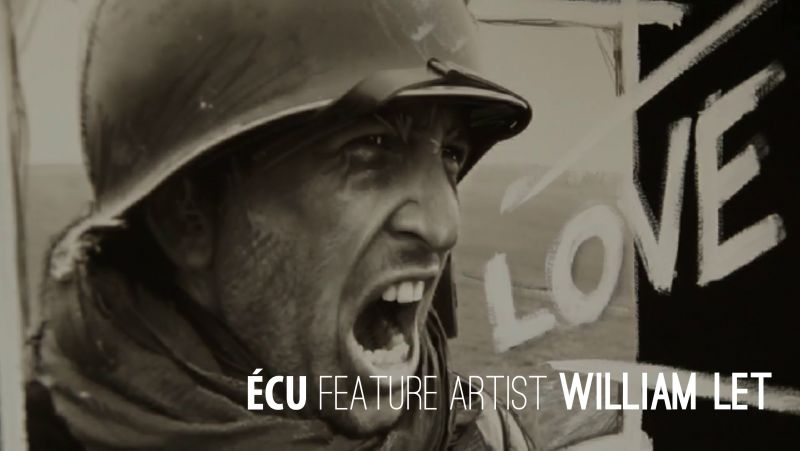|
|
||
|
Pro Tools
FILMFESTIVALS | 24/7 world wide coverageWelcome ! Enjoy the best of both worlds: Film & Festival News, exploring the best of the film festivals community. Launched in 1995, relentlessly connecting films to festivals, documenting and promoting festivals worldwide. Working on an upgrade soon. For collaboration, editorial contributions, or publicity, please send us an email here. User login |
Meet Indie Filmmaker: PATIENT
Canadian director Dan Clements whose recent submission to ÉCU 2010's Non-European Dramatic Short film category is entitled ”Patient” talks to us about blind dates, false teeth and his motivations as a filmmaker.
By Mairi Cunningham
Q: First off, the ambiguous and unsettling opening was amazing. First time round, I was fooled into thinking it was going to be a very awkward blind date that was about to be acted out, not a hostage negotiation! Tell me a bit about this opening scene. Where did the general idea come from for the film?
Thank you for the compliment. You felt exactly how we wanted you to. Why did we go with that style for the opening scene? It is my theory (and probably someone else’s that I’m stealing from) that the camera is an equally important actor in a film. It is either an unseen, fly on the wall character with a personality/interest of its own, or it is emotionally attached to one or more of the characters actually in the film. Throughout the film, and more so in the opening, the camera is in most ways acting with the lead character, Timothy Harris. It is often attached directly to his emotions and psychological state. It is nervous and shaky with him, it vibrates to his vocals cords, it jolts and pushes along with his actions, it is choppy and jump cutting in moments of intense-outbursts, it chooses to see things how and when it wants to see things, etc. It’s as if his feelings and mentality are attached by strings that literally twist and turn the shots and flash the film. It is the passenger in the roller coaster seat next to him, and it goes along for his ride with him. The moment he dies the film is no longer hand-held. It is detached from the situation and so is everyone else. Timothy Harris is selective in his reality, and appropriately so is the camera…
Q: Where exactly was the film shot?
Queen Street East, Toronto, Ontario, CANADA!!! I think the location is [a] bar now. But, I’m afraid to go back in case they found any fist shaped holes in the walls when I left.
Q: Tell me a little bit about the scenes shot outside of the police cars . How was it shooting in mid-winter?
I’m a Canadian filmmaker; it was easy shooting in mid-winter. Like the battle of Passchendaele. The camera jammed a few times, but thanks to the big-bear we had as cameraman – Adam Crosby – he was able to keep the mag warm in his coat between takes. It was difficult of course, but my whole crew was so fantastic, professional, and incredible that it posed no problem bigger than any of the others.
Q: How long did the filming process take? Did you encounter any difficulties along the way?
We shot the film in three days and did some pick-ups and the teeth scene on a fourth day with just me, the DP (Mikhail Petrenko), and the Cameraman. Did we encounter difficulties? Absolutely. It was unbelievable. There were innumerable difficulties: Trying to do a film that needed 30, 000 to make properly, but at a third of that budget (which only proves how incredible the producers, Kari Faiweather and Neil Huber, are)… shooting in a temperature that was colder than an ex-girlfriend… turning an abandoned nightmare of a warehouse into a corporate coffee shop in two days (which is a testimonial to all of our crew, PA’s, and especially Rose Lagace our Production Designer)… trying to make 3 men with black clothes look like a 20 man swat team… my sanity was difficult to maintain as I was often trying to stay in the same mindset of the lead character, which was not pleasant… trying to inspire a crew that was cold, hungry, stressed, and tired, trying to inspire myself who was just as cold, twice as hungry, three times as stressed, and ten times more tired, I could go on and on… We tried to do too much with too little, and the only reason we pulled it off is because my Producers, and a dynamite, unyielding crew. You are supposed to encounter difficulties along the way. If you are shooting a film and you find that there aren’t any difficulties then you’re probably making a terrible film. If people are inquiring on and questioning the style, the material, the decisions, then it sounds to me like you are making something edgy, risky, intriguing, and ballsy. The opposite of that would be politically correct, easy, and boring… If you’re making a movie you have to believe in happy accidents and you have to believe you’re taking a risky jump off of the edge of a cliff to begin with, or else you’re going to be really surprised when everything changes last minute and you’re not ready to cope. The best things that have ever happened on film are the spontaneous sparks that were not planned, and they seem like devils but were angels in disguise.
Q: Tell me a bit about what it was like working with the actors?
It’s simple; I was the luckiest director in the world to get these people. They trusted me, and with little preparation they jumped in, got their hands dirty, and in most cases, everyone at some point in this film got sprayed with jugs full of blood, including the crew. I still can’t believe they let me do it. That’s just how sportsman like they all were… They almost make me want to pump out a character screenplay just so I can work with them again.
Siobhan Murphy played Chanel Hilton and at the time was in a lead in a big Canadian sitcom, “The Smart Woman’s Survival Guide”. I’ll never forget how this professional actress came on set, new every word of the script, put up with the freezing cold (as we all did), but in a business skirt, and yet she still let this “kid director” give her adjustments and shape her performance. Her modesty was inspiring.
Jenny Raven’s hostage acting is only surpassed by her off set personality. She’s incredible and always ready to crack a joke. She put up with so much uncomfortable positioning in that film, and she gave this character that I wrote, with one dimension, a humanity that wasn’t in the script. She really took this role of a device in the screenplay and made it into a person in the situation that was crucial to the suspense of the story… She convinced me with this supporting role that I need to put her in a leading role. She even let us break her teeth.
Randy Thomas as Timothy Harris was an inspiration, and a mentor of emotion. From day one of the auditions, he owned it… Randy did what I want any actor to do, which is to take the role from me. It’s theirs, not mine. Like teaching some one to ride a bike, once you show them and they get it, they just need you there to guide them, just in case. But this was more like teaching Randy to ride a motorcycle. Once I explained how I saw the character I wrote, he just went with it. He took off with it, squealed tires, and peeled away it... And again, like all the talent, Randy’s modesty was shocking when you see how good he really is on screen. I’ve luckily had such bonding experiences with most of my cast, on this film and others, that we stay closely in touch afterward.
Q: There are some pretty stomach-churning moments, particularly when the hostage held at gunpoint has her teeth knocked in. Tell me a bit more about how you went about shooting this and the sound effects involved. And what was the clean-up process like?
There are two people most technically responsible for how beautifully horrific that scene is (aside from everyone contributing to it, such as Pearl Ball-Harding, my great editor): Dashen Naidoo (sound) and Alexandra Rotundo (make-up). Alex spent a long time making teeth molded from Jenny’s actual mouth. She worked really hard on how close they were to Jenny’s true teeth. The scene didn’t work on set at the first attempt. The gums were sticking to far out of Jenny’s mouth and didn’t look real... It looks that real because of how much time Alex spent prior on the teeth, the gums, the blood,etc. Then with editing a quick flash of the “push in” of the gun, Dash, our post sound guru, added spine tingly “egg cracking” sound effects. The sound works so well because, as I’ve seen in most festivals, everyone covers there eyes and gasps when they see the teeth break. But they never cover their ears. So they have no choice but to listen to the crack and scream that follows. What they don’t know is that because they looked away, the sound is going to make it worse than if they had just kept watching. Now their mind is going to flash images that are far more terrifying, to go along with the gross, gurgling aural elements. The clean up process was easy. We just drove Jenny to the hospital and promised to get her dentures, so she was okay with having no teeth for a while. That’s why we shot it last.
Q: Why did you choose not to reveal the identity or the motives of the killer in the final scene where his wallet is handed around?
What were the motives of Timothy McVay? What were the motives of the Eric Harris? What drives Gacy, Bundy, Gein, or Manson? For me, the scariest things are what you don’t know about some one. Not what you do know about them. It’s what you can’t see, it’s what they aren’t telling you, and it’s what’s behind their eyes that will trigger your mind to assume it’s something awful. If I give the audience awful suggestions, as in never fully answered questions, their brains with fill in the blanks with something much more horrific than I could ever show them. This forces them to take part in the film, as well as personalize the answer (like choose your own adventure). It’s scarier when you can’t see the monster, but you know it’s there. You can hear it breathing.
Q: And finally, would you say you are a ‘patient’ director to work with?!
This is a yes and no answer. People in general, let alone directors, are stimulus response creatures. We’ll react differently in a war than we will at a candle-lit dinner… There is only one way to make a film, from the heart, mean it, like you mean “I love you” and therefore have passion for it, and don’t ever be embarrassed or apologize about that because there is no shame in it…I am emotional on the set. This is the one business in the world where that is not only allowed, it’s required. Every other job you leave it at the door. This job you bring it with you. Directors and actors wear it on their sleeves, and people wonder why they’re so touchy. It’s because they’re emotionally naked in front of everyone. So, you’d have to ask my crew if I’m patient with them, rather than me… 18.01.2010 | ÉCU-The European Independent Film Festival's blog Cat. : actor actress Adam Crosby Alexandra Rotundo cameraman Canada canadian director Chanel Hilton dan clements Dan Clements designer Director editor Entertainment Entertainment Fest directors Films Flash Jenny Raven Kari Faiweather Memory Mikhail Petrenko Neil Huber Next Magazine Ontario patient the film Pearl Ball-Harding Person Career Queen Randy Thomas Rose Lagace Siobhan Murphy sportsman Timothy Harris Timothy McVay Toronto Independent Interviews FESTIVALS
|
LinksThe Bulletin Board > The Bulletin Board Blog Following News Interview with IFTA Chairman (AFM)
Interview with Cannes Marche du Film Director
Filmfestivals.com dailies live coverage from > Live from India
Useful links for the indies: > Big files transfer
+ SUBSCRIBE to the weekly Newsletter Deals+ Special offers and discounts from filmfestivals.com Selected fun offers
> Bonus Casino
User imagesAbout ÉCU-The European Independent Film Festival Hillier Scott Hillier Scott (ECU)
Scott Hillier, Founder and President of ÉCU - The European Independent Film Festival
Scott Hillier is a director, cinematographer, and screenwriter, based in Paris, France. In the last 20 years, Hillier has gained international recognition from his strong and incredible cinematography, editing, writing, producing and directing portfolio in both the television and film industries.
Scott began his career in the television industry in Australia. In 1988, he moved to London getting a job with the BBC who then set him to Baghdad. This opportunity led him to 10 years of traveling around world for the BBC, mainly in war zones like Somalia, Bosnia, Tchetcheynia, Kashmir, and Lebanon. After a near fatal encounter with a Russian bomber in Tchechnyia, Hillier gave up his war coverage and began in a new direction.
He moved to New York City in 1998. He directed and photographed eight one-hour documentaries for National Geographic and The Discovery Channel. Based on his war knowledge and experience, Hillier wrote and directed a short film titled, “Behind the Eyes of War!" The film was awarded “Best Short Dramatic Film” at the New York Independent Film and TV Festival in 1999. From that he served as Supervising Producer and Director for the critically acclaimed CBS 42 part reality series, "The Bravest” in 2002 and wrote and directed a stage play called, "Deadman’s Mai l," which ran at Le Théâtre du Moulin de la Galette in Paris during the summer of 2004. He then became the Director of Photography on a documentary titled, “Twin Towers." This was yet another life changing experience for Hillier. The riveting documentary won an Academy Award for "Best Documentary Short Subject" in 2003. In 2004, Hillier changed continents again, spending three months in Ethiopia. He produced “Worlds Apart,” a pilot for ABC America / True Entertainment / Endemol. As you can see, Hillier was and is always in constant movement and enjoys working in a number of diverse creative areas including documentaries, music videos, commercials, feature and short films.
Scott studied film at New York University and The London Film and Television School. He also studied literary non-fiction writing at Columbia University. Hillier's regular clients include the BBC, Microsoft, ABC, PBS and National Geographic. Between filming assignments, he used to teach film, a Masters Degree course in Screenwriting at the Eicar International Film School in Paris, France and journalism at the Formation des Journalistes Français in Paris, France.
View my profile Send me a message The EditorUser contributionsUser links |




















